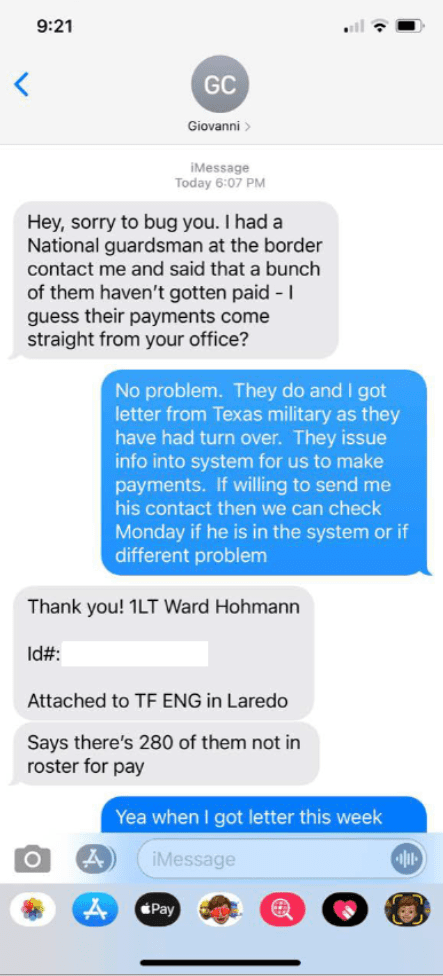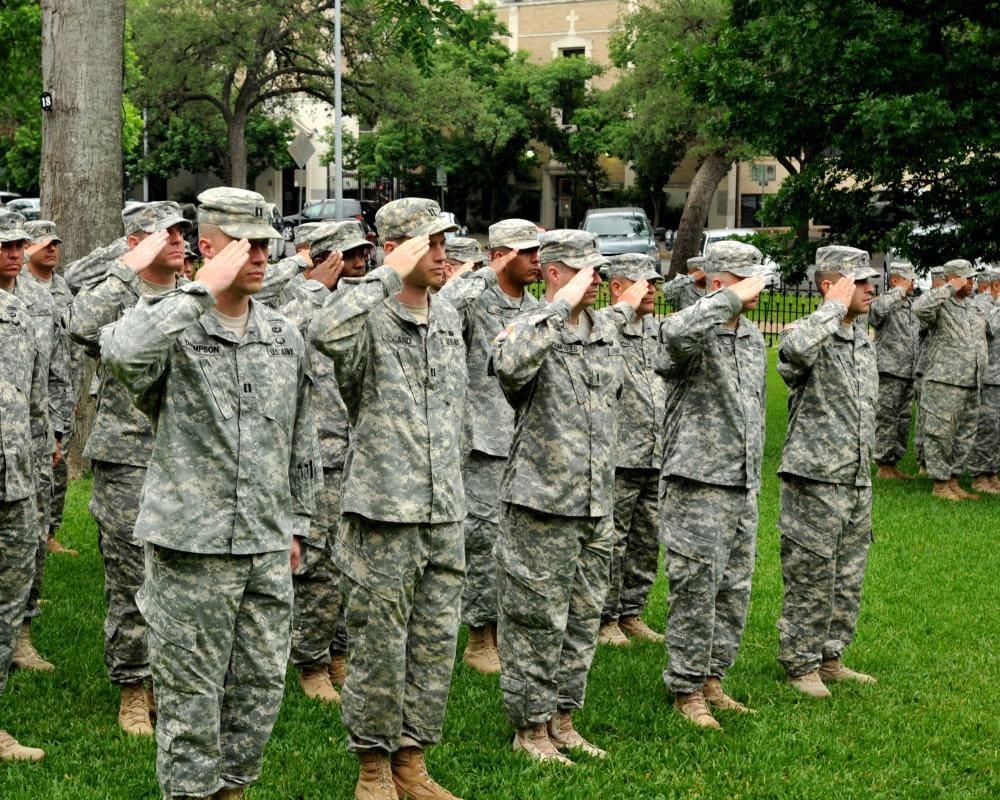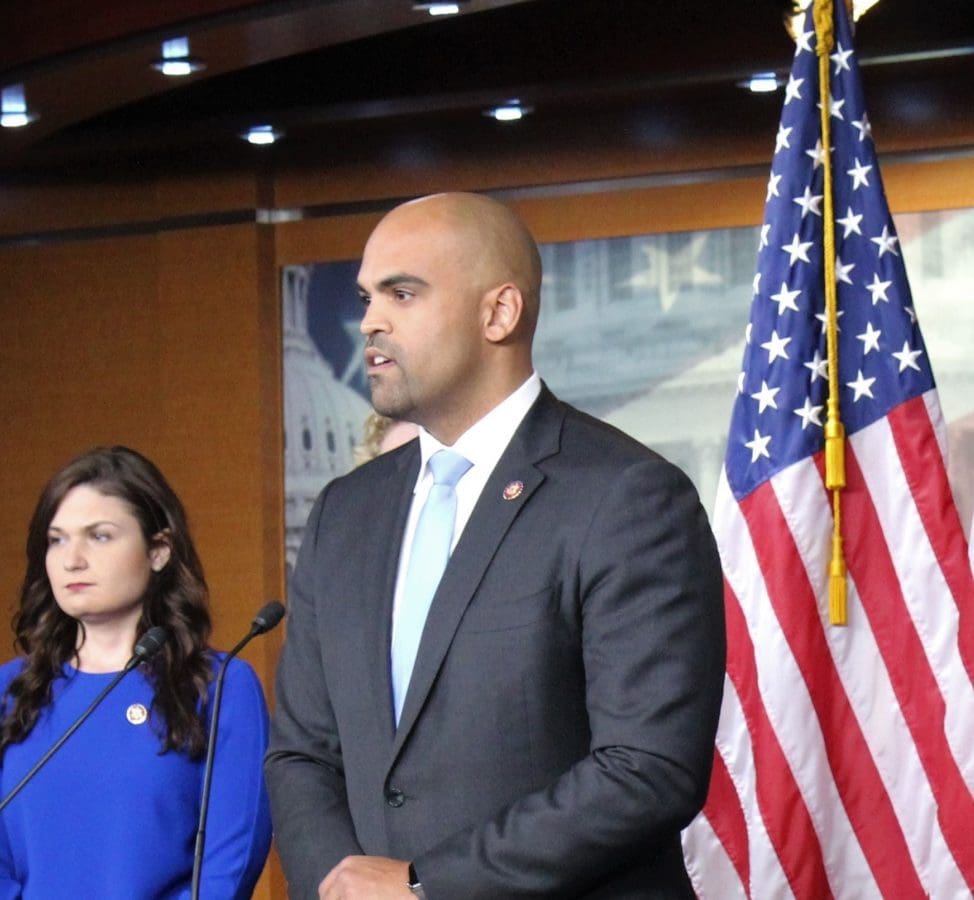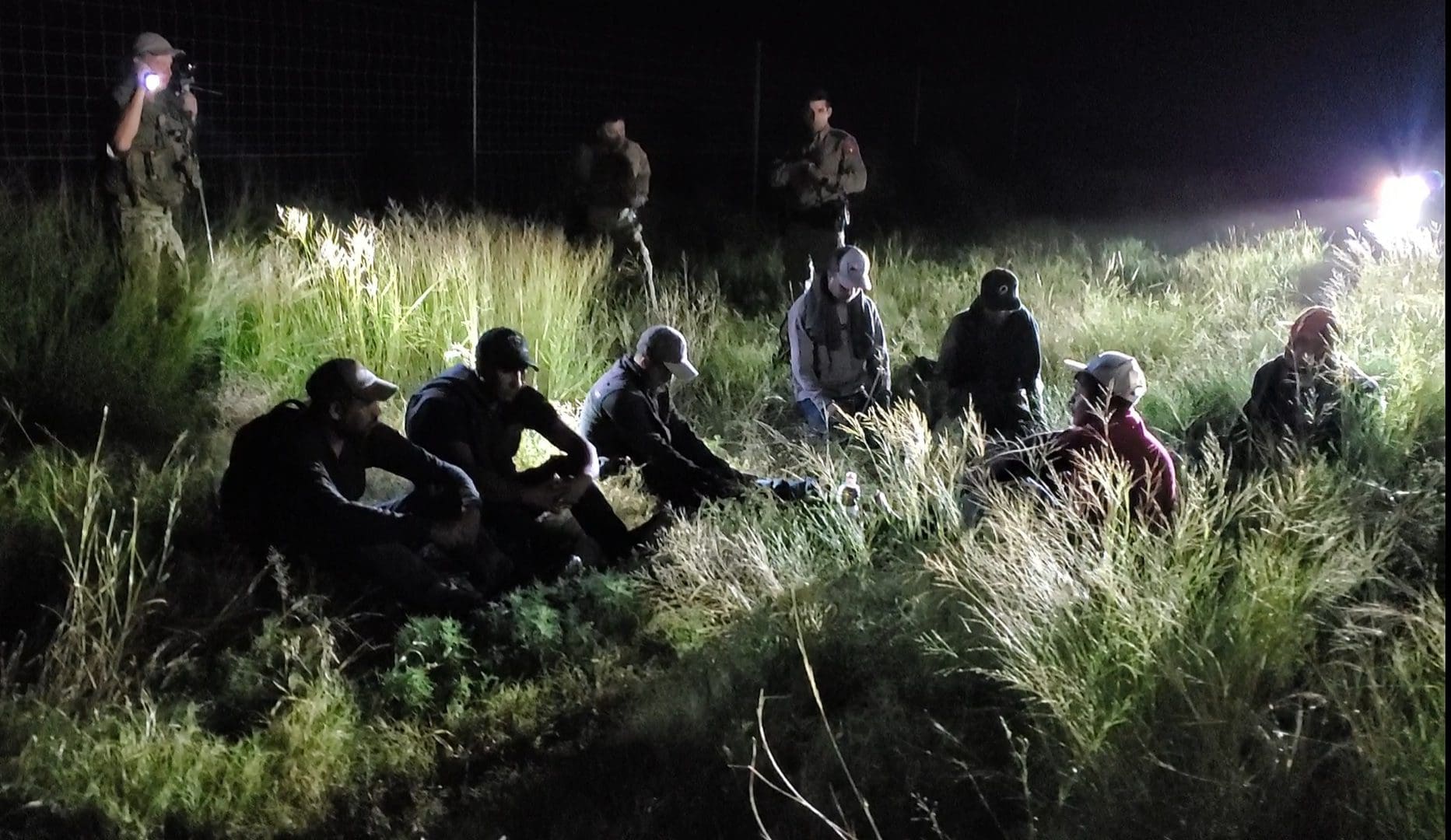Shortly after President Joe Biden’s inauguration, he had a full-blown border crisis on his hands. Though the administration appeared content to ignore its issues on the southern border, even typically friendly outlets reported border crossings had jumped to the highest level in 15 years and the most encounters in 20 years.
It’s against this backdrop that Gov. Greg Abbott in March of 2021 launched Operation Lone Star (OLS), his public pivot toward immigrants illegally crossing Texas’ open border with Mexico. “The Operation integrates [Texas Department of Public Safety] with the Texas National Guard and deploys air, ground, marine, and tactical border security assets to high threat areas,” Abbott’s office stated in a March press release. It did not specify how many troops were to be deployed.
On July 27, Abbott ordered the Texas National Guard (TNG) to “assist” the Texas Department of Public Safety “by arresting lawbreakers at the border.” He didn’t specify how many troops were to be deployed. On August 24, Abbott announced he was “surging” TNG forces to the border, but again, he provided no specific numbers.
Roughly two months later, when discussing an October 13 conference call Abbott held with border county sheriffs, Kinney County Sheriff Brad Coe said “it sounded like” Abbott was preparing “to send somewhere between 500 and 1,000 [TNG troops] towards the border.” In an October email to staff, Texas Comptroller Glenn Hegar said his understanding was that Abbott’s office “wants to increase deployment from 5,000 personnel to 10,000” but that it would not happen “in the coming weeks.”
That same month, seven months after OLS began, a source within the TNG told Texas Scorecard that soldiers weren’t being paid on time.
“I’ve had one soldier who went 42 days without pay. He was finally paid on October 11, but they’re saying that this next round of pay could be not until after November,” the source said. “They’re having rampant amounts of pay issues.” At the time, the source described morale within the TNG as “horrible.”
Internal communications in the Texas comptroller’s office suggest that elected officials and state employees were scrambling to address the issue of soldiers not being paid on time. It remains unclear how widespread the issue is, and officials have not stated whether it has been resolved.
On October 25, Texas Scorecard, under the Texas Public Information Act, sent an open records request to the Texas comptroller, requesting all internal notices and memos regarding overdue pay and backpay regarding the TNG, as well as “payment guidelines for Texas National Guard Infantry.”
Texas Scorecard received the following records from the comptroller on November 16.
Pay Issues
In an October 18 letter, Maj. Gen. Tracy Norris, Adjutant General of the Texas National Guard, asked Texas Comptroller Glenn Hegar “to help … ensure” TNG soldiers deployed as part of OLS “are reliably paid in a timely manner.”

Two days later, Hegar asked comptroller staff if there were issues paying soldiers. “Understand that OOG [Office of the Governor] wants to increase deployment from 5,000 personnel to 10,000 yet that is not something that is going to happen in the coming weeks,” Hegar wrote.
Rob Coleman, director of the Comptroller’s Fiscal Management Division, replied. “According to staff, we are aware that the agency has experienced turnover in some senior staff, but we are prepared to assist as needed,” he wrote. “If we run into significant problems, I’ll [sic] let you know.”
On October 22, Hegar emailed Coleman again. “[State] Rep [Giovanni] Capriglione texted me this evening about some national guardsmen not getting paid and said that about 280 have not been paid,” Hegar wrote. “So fyi and more clarity as to why [TMD] sent us a letter. They have a bigger issue than admitting it seems in putting data into CAPPS so their folks can get paid.”
First Lieutenant Ward Hohmann was specifically mentioned in the exchange, and Hegar said he would check to see whether Hohmann was “in the system.” A screenshot of Capriglione and Hegar’s communication was included in the documents the comptroller’s office provided Texas Scorecard.

Capriglione’s office did not respond to a request for comment before publication.
At this time, Abbott’s orders to deployed TNG troops were to help the Texas Department of Public Safety arrest lawbreakers at the border.
On October 22, Coleman told staff in an email that TMD “also contacted the Governor’s office and said that there was something about the current process taking a while for personnel to get their first check and the General was worried about what personnel might start saying publicly.”
“Since a letter was sent to the Comptroller and the Governor’s office reached out to us, Exec is interested in knowing about this activity.”

On October 25, Alice Alvarado, manager of the comptroller’s Statewide Fiscal Systems Department, emailed Coleman that First Lt. Hohmann “does not have a current payment processed,” and “the last payment processed for him was on March 5, 2021.”
“He is not included on any of the payrolls that failed Friday night due to the Outbound being run twice,” Alvarado responded, adding that she had asked Danette McWilliams (who was formerly with TMD but had been transferred to the comptroller) to look into the situation and inform TMD of the “280 [soldiers] in total missing their payments.” Alvarado commented, “There appears to be an internal disconnect at TMD.”
On October 13, anywhere from 500 to 1,000 TNG forces were expected to be deployed to border counties. Seven days later, Hegar told staff his understanding was that Abbott’s office wanted to increase the deployment from 5,000 to 10,000.
In an October 22 email, Alvarado informed Coleman of another issue. “We are also aware of high turnover at TMD.”
McWilliams replied to Alvarado on October 25 at 8:16 a.m. “I just checked on the three payrolls that failed for TMD and there were a total of 82 payments that did not process,” she wrote. “I’m not sure where they are coming up with 280 that did not get paid. I will reach out to TMD to get more information.”

“If TMD does not show the one person we know of – the other 279 may not be ‘in the hopper’ either!” Alvarado replied.
Texas Scorecard asked the comptroller to clarify what “82 payments” and “three payrolls” mean.
“[Eighty-two] payments does not necessarily mean 82 soldiers. If one individual worked during multiple pay periods, they could have more than one payment,” replied Kevin Lyons, spokesman for the Texas comptroller. “Three payrolls does not necessarily mean three pay periods. TMD has two SAD (State Active Duty) pay calendars set up per month, 1st-15th and 16th-30th(31st). TMD uses Special Pay Calendars that allows payments to process as/when received. Multiple payrolls can be processed for each calendar.”
Another source within TMD expressed to Texas Scorecard their frustration when servicemen aren’t paid on time. “It’s always troops first; you take care of your troops,” the source said. “Anytime that a troop is in trouble, or has trouble, or [is] not being taken care of, it really bothers me.”
At 9:44 a.m. on October 25, McWilliams informed Alvarado that TMD’s human resources department found “the last orders they have for [First Lt.] Hohmann were from February, and those were paid in March.” McWilliams said HR had contacted “the Army side to see if he is on a payroll roster that has yet to be provided to TMD for process.”
“Until [TMD] can determine where the ball was dropped, we are on hold – for this particular issue,” Alvarado wrote Coleman that same day.
At 9:46 a.m., Coleman updated Hegar on Hohmann’s specific situation. “We looked up 1LT Ward’s payment records and he does not have a current payment processed. The last payment processed for him was on March 5, 2021,” Coleman wrote.

“TMD attempted to process a payroll that erred off both Thursday and Friday, and he was not included on either of the payrolls. Those payrolls covered 89 personnel.” Coleman wrote they would “contact TMD to inquire specifically about” Hohmann “and work with them on their issues.”
Texas Scorecard asked the comptroller if any orders for Hohmann after February were unpaid, and for how long. “CPA would not have information regarding the mission completion, federal orders, or how long it took TMD to process the payment(s). TMD would have to provide that level of detail,” Lyons replied. “We only process payments when TMD enters the information required to process a payment into the payroll system on their end.”
“We do know that Lt. Hohmann received additional payments on: Oct 28, Nov 4, Nov 19, and Dec 6, 2021.”
A source within TMD recently told Texas Scorecard the pay issue for the TNG “is ongoing, but it’s gotten better” and indicated that the improvement is significant. “From what I see, they’re trying to make things right,” the source said. “TMD has been trying to do the right thing from a leadership standpoint.” The source said the issue is affecting those “who have never been on a mission before, they’re new to the guard, or new to TMD.”
Silence
On November 23, Texas Scorecard asked Lyons the following questions: Had all TNG pay issues been resolved? If so, when and how? If not, for how much longer would the pay issues continue?
Texas Scorecard also asked for the actual number of unpaid guardsmen, and the duration of time they have gone unpaid.
“We don’t have any additional information outside of the emails we’ve provided you,” Lyons replied seven days later. “You’ll need to check with [TMD] itself for answers to your questions.”
Inquiries to TMD were not replied to before publication.
Coleman told Hegar on October 22 that TMD anticipated “adding about 500 personnel each week for the foreseeable future.” In late November, it was reported that Abbott deployed 10,000 TNG and state trooper forces to the border as part of Operation Lone Star.
On October 21, Texas Scorecard emailed Luis Saenz, Abbott’s chief of staff, and informed him this publication had “heard allegations of payroll issues for soldiers in the Texas National Guard, specifically not being paid in a timely manner.”
“What does the governor know about this? Are these issues being addressed?”
Though it has been verified that Saenz’ email was received, no response has been given yet.
This article has been updated since publication.





